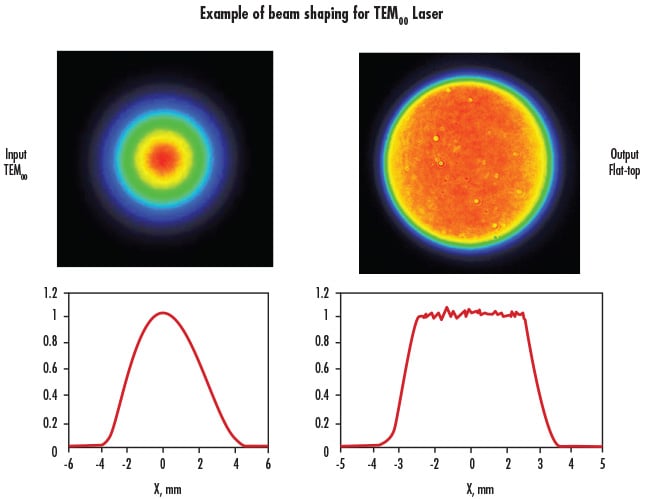
AdlOptica πShaper (piShaper) Flat Top Beam Shapers are refractive field mapping optical systems that convert collimated Gaussian input beams into collimated flat top beams with a uniform intensity distribution and flat phase front. Due to the field mapping optical design, the even intensity distribution of the converted beam is stable over great distances making it ideally suitable for holography, microscopy, and system integration. With no internal focusing, they are also the perfect solution in applications such as material micromachining, welding, and engraving that require high power lasers. These AdlOptica πShaper Flat Top Beam Shapers are offered in common YAG, fiber laser, and CO2 laser sources, operating over a defined wavelength range for laser tuning. Achromatic versions are designed to be used with multiple laser sources.
Note: Focusing a flat-top beam after a πShaper results in loss of the flat top profile. AdlOptica Focal-πShaper Q Flat Top Beam Shapers are available for applications that require a focused flat top spot.

or view regional numbers
QUOTE TOOL
enter stock numbers to begin
Copyright 2023 | Edmund Optics, Ltd Unit 1, Opus Avenue, Nether Poppleton, York, YO26 6BL, UK
California Consumer Privacy Acts (CCPA): Do Not Sell or Share My Personal Information
California Transparency in Supply Chains Act